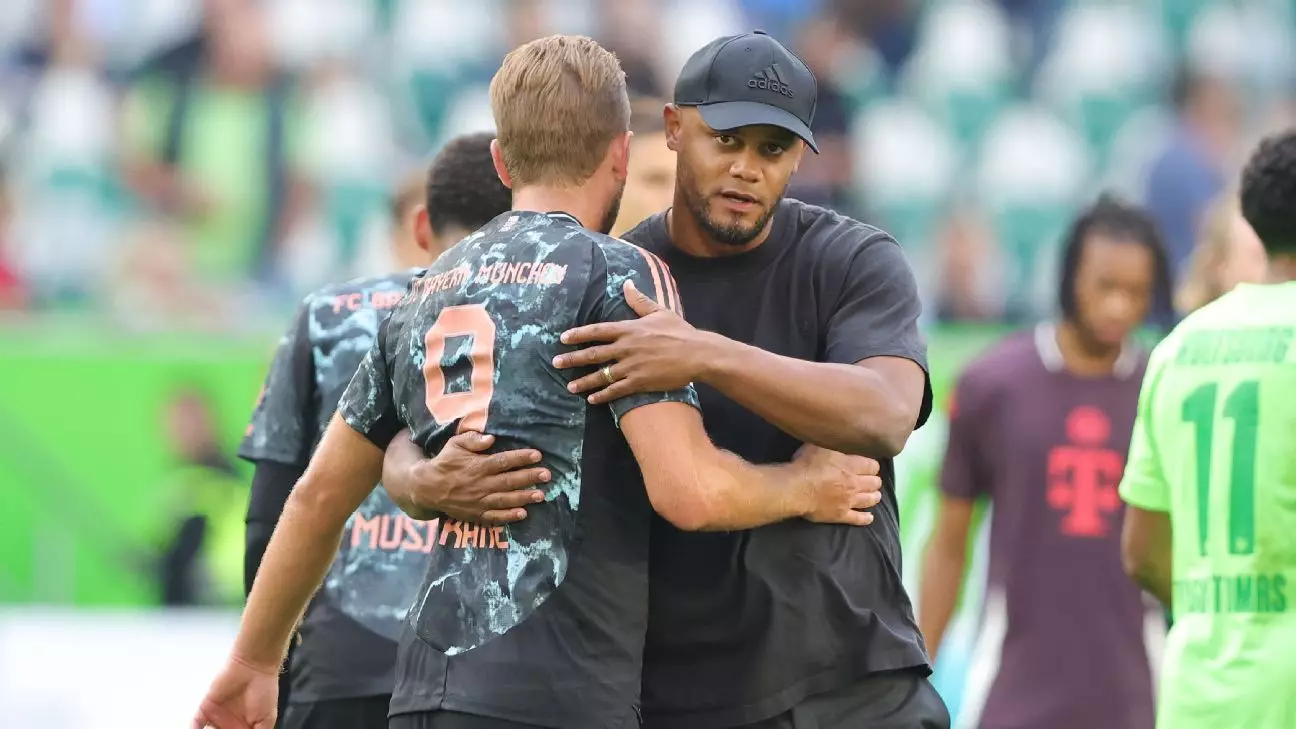Bayern Munich’s recent victory over VfL Wolfsburg showcased some concerning defensive issues that could potentially create problems in their upcoming matches. While the team started strong with a dominant first half, the second half revealed vulnerabilities in their defensive line. Kim Min-Jae’s struggles to adapt to Bayern’s defensive tactics, especially in comparison to his previous experiences in Serie A, were glaring. The central defenders’ positioning and coordination came into question when faced with Wolfsburg’s pressing, ultimately leading to the concession of goals. The absence of a true defensive leader, compounded by the injury to Josip Stanisic, highlights the urgent need for reinforcements in the defensive department.
Midfield and Attack Resilience
Despite the defensive lapses, Bayern’s midfield and attacking players showcased resilience and individual brilliance in securing the victory. Players like Harry Kane and Thomas Müller played pivotal roles in shifting the momentum back in Bayern’s favor after a shaky start to the second half. The team’s ability to rely on individual qualities when tactics falter is a testament to their skill and determination. Serge Gnabry’s resurgence after an injury-plagued season added another dimension to Bayern’s attacking threat, culminating in the match-winning goal. These performances underscore the importance of maintaining a balance between defensive solidity and attacking prowess.
The game between Borussia Monchengladbach and Bayer Leverkusen highlighted the ongoing controversies surrounding VAR decisions in football. The interference of VAR, particularly in crucial moments of the match, continues to disrupt the flow of the game and raise doubts about the fairness of officiating. The inconclusive nature of VAR reviews, as seen in the penalty decision involving Ko Itakura and Amine Adli, contributes to the confusion and frustration among players, fans, and officials. While the use of technology in football aims to eliminate human errors, its inconsistent application and impact on the game remain subjects of debate and scrutiny.
The discussion surrounding Giovanni Reyna’s role at Borussia Dortmund sheds light on the challenges faced by young talents in competitive football environments. Despite his undeniable talent, Reyna’s position within the team hierarchy has been a topic of speculation and scrutiny. The competition for playing time and the demands of multiple competitions highlight the complexities of managing and developing emerging players like Reyna. Sporting chief Sebastian Kehl’s acknowledgment of Reyna’s capabilities and the need for patience and acceptance from fans reflect the realities of navigating a career in professional football. Reyna’s decision to stay and compete for a place in the squad, despite external pressures and opinions, exemplifies his commitment to growth and development at a top club.
Bayern Munich’s victory over VfL Wolfsburg revealed both strengths and weaknesses in the team’s performance. While defensive vulnerabilities and VAR controversies pose challenges to the team’s consistency, the resilience of their midfield and attacking players provides hope for future success. The ongoing dilemma surrounding Giovanni Reyna at Borussia Dortmund underscores the complexities of navigating a young player’s career in a competitive environment. As football continues to evolve and adapt to technological advancements and competitive pressures, the ability to address and overcome these challenges will be crucial for teams and players striving for excellence in the sport.

